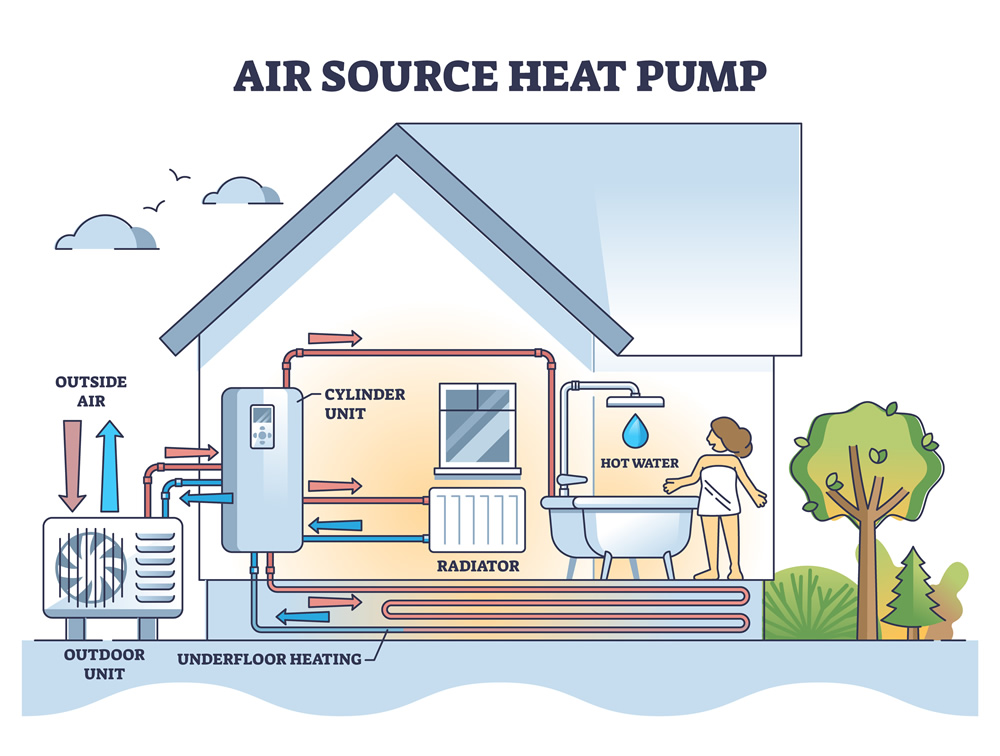Heat pumps are becoming popular as a way to replace fossil fuels. This is due to the rise of renewable energy and the goal to reach net zero emissions. You could lower your energy bills too. With incentives like the Government’s Boiler Upgrade Scheme (BUS), you might get £7,500 off your initial costs if you are eligible.
What is a heat pump?
A heat pump transfers heat from one source location (soil, water or air) to another location, such as the radiators in your home. They run on electricity and are up to 300% more efficient than a traditional boiler. This is because the amount of heat produced is much higher than the energy consumed.
Air source heat pumps use the principles of vapour compression to generate heat. They use outdoor air to produce heat for your home. Air source heat pumps consist of 4 major elements that allow the refrigerant to pass from the liquid form to gas. These are a compressor, a condenser, an expansion valve, and an evaporator.
When the refrigerant passes through the system, it absorbs the heat from the outside air. Then, the compressor increases the heat by increasing the pressure. In the condenser, this higher temperature heat is transferred to the heating and hot-water circuits of your home. Then, the medium temperature liquid flows into the expansion valve and after the release of pressure, its temperature also drops. Finally, the now cooled down liquid is returned to absorb more heat from the air and repeat the process.
ASHPs can be used for heating water for domestic use, radiators, and underfloor heating. Such systems are called air-to-water heat pumps. If a large amount of hot water is suddenly needed, they are equipped with an electrical resistance heating element. This supplys additional heated water (at a lower efficiency rate, though).
Alternatively, air source systems can be used for heating and cooling the indoors air using air-to-air heat pumps. These systems work like an air conditioning unit. However, they can both heat and cool your home efficiently. This adds to the benefits of air-to-air systems.
Things to consider
Government Incentive Schemes
A key factor to think about when looking at the cost of an ASHP installation is how much you can save on installation costs. The Boiler Upgrade Scheme (BUS) is a government backed incentive that could give you £7,500 towards the cost if you are eligible. We also offer the choice of financing the rest of your installation costs with easy monthly payments.
Warranty periods of Heat Pumps
Most heat pump systems will come with a warranty period with options to extend this. Heat pump warranties can be anything from 2-5 years and are dependent on the manufacturer.
Planning Permissions for Heat Pumps
Many heat pump installations have no need for planning permissions. However, there are some exceptions to this rule. For example, if you live in a conservation area or a listed building you may be need planning consent. It is always worth checking. Our team of expert consultants will help you with any questions you have.
How long will my heat pump last?
A heat pump can last about 20 to 25 years. This is much longer than traditional gas boilers or other heating systems.




